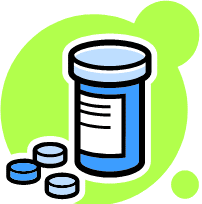Tens of millions of Americans take prescription drugs everyday. Whether taking a blood pressure pill or getting an insulin injection, its just an everyday routine. But what if the pills or injectables are contaminated?
Last December, federal agents arrested 14 executives and workers in a tainted drug case blamed for as many as 64 patient deaths. Those arrested were all affiliated with the New England Compounding Center in Framingham, Massachusetts. Authorities say that contaminated drugs made with expired ingredients and produced in filthy conditions caused a deadly outbreak of fungal meningitis.
The company’s chief pharmacist Barry Cadden was charged with the deaths of 25 patients and a wide array of other charges including racketeering and the introduction of adulterated drugs into interstate commerce. His supervisory pharmacist, Glenn Chin, received similar charges. Both men face life in prison if convicted.
Six other pharmacists and other workers were charged with lesser crimes including mail fraud, conspiracy and racketeering.
In announcing the indictments, a senior Justice Department official said, “Let me be clear: Actions like the ones alleged in this case display not only a reckless disregard for federal health and safety regulations but also an extreme and appalling indifference for human life.”
Prosecutors say that company officials deliberately used expired ingredients and often diluted them with other ingredients to save money. Workers also knew that bacteria and mold were common in the company’s “clean rooms.”
The company issued phony quality assurance logs and made false log entries to show that sterile areas of the plant were routinely sanitized.
The company apparently escaped more rigorous inspections for years by claiming to be a “compounding pharmacy.” In reality, it was a pharmaceutical manufacturer. To avoid tougher scrutiny, the company even created false patient records to make the facility truly look like a pharmacy.
As of last year, some 3500 victims or their families have filed claims. Although dozens died, many more suffered horrible meningitis symptoms. Prosecutors say that one Michigan clinic alone purchased 400 vials of an injectable pain medication from the New England Compounding Center. After receiving injections, 217 patients suffered from fungal infections and 15 died.
Glenn Chin was arrested at the airport getting ready to board a plane for Hong Kong. He says that he was going on a “family vacation” and had no intention to flee.
As of this writing, Chinn and Cadden have been released on bond and are awaiting trial. Both have pleaded not guilty to all charges. Chinn’s lawyer claims that his client is being unfairly made the government’s scapegoat.
Adulterated and contaminated pharmaceuticals remain a huge problem in the United States. The New England Compounding Pharmacy case is especially troubling not only for the sheer number of victims but because the company managed to avoid inspection and scrutiny for years by masquerading as a pharmacy.
Nonsterile drugs – “filthy pharma” – continues to be imported, manufactured and distributed in the United States and around the world. Because Medicare or Medicaid covers most prescription medications, the sales of adulterated drugs are covered by the federal and many state False Claims Acts. Those laws pay whistleblowers a percentage of whatever monies are recovered by the government.
Whistleblowers who possess inside information about unsanitary manufacturing facilities (called cGMP violations) or nonsterile or contaminated drugs being distributed in the United States are eligible for an award. More importantly, when it comes to cGMP violations and unsafe drugs, whistleblowers save lives.
Think you have information? Give us a call. All inquiries are protected by the attorney client privilege and kept in confidence. Even if you are unsure if your information is relevant, give us a call. The life you save may be someone you know.
Opening the medicine cabinet each morning shouldn’t become a deadly game of Russian roulette.
Need more information? Our whistleblower lawyers help clients receive the highest possible awards and put a stop to dangerous drugs. To date, our clients have received over $100,000,000.00 in whistleblower reward monies. For more information, contact attorney Brian Mahany at or by telephone at . See also our pharmaceutical whistleblower and Massachusetts whistleblower reward pages.


